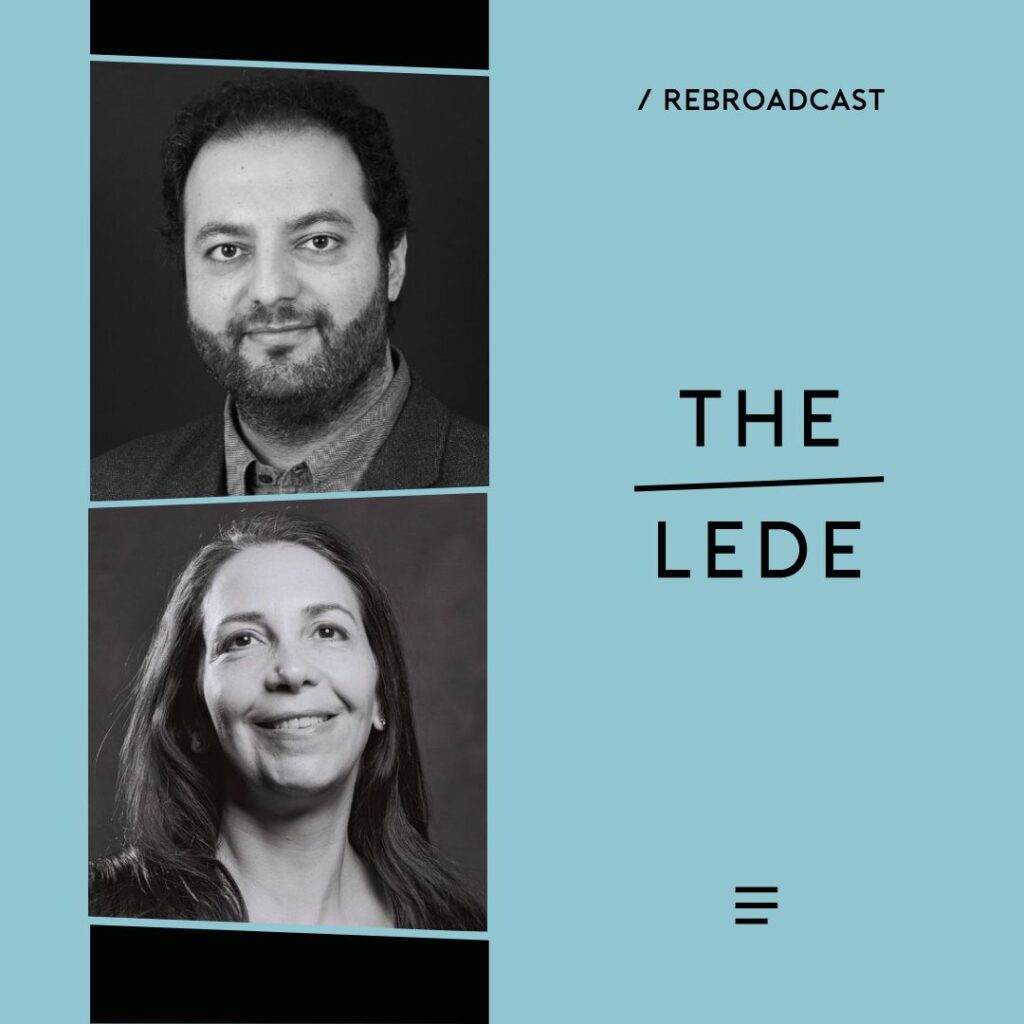This episode takes listeners behind the scenes of a groundbreaking New Lines investigation by genocide researchers Uğur Ümit Üngör and Annsar Shahhoud, which won the prestigious Chair’s Award at the Drum Awards for Online Media in June 2023
When Amjad Youssef met “Anna,” a young Alawite Syrian who was studying abroad, the military man was skeptical at first. But as the weeks unfolded, he began to open up to his fellow pro-regime partisan over Facebook. What he didn’t know was that Anna had been created by genocide researchers Annsar Shahhoud and Uğur Ümit Üngör. In this podcast with New Lines’ Rasha Elass, they talk about how they used Anna to expose Amjad’s participation in the 2013 Tadamon massacre, carried out by the Syrian regime.
Created in 2018 “out of necessity,” Anna was able to build a rapport with dozens of Assad’s perpetrators through an elaborate catfishing scheme, giving the researchers unprecedented access into the minds of people like Amjad, ultimately leading to a chilling confession by the man who massacred dozens of Syrians. “Nobody’s ever done this before,” says Uğur. “There are no examples of people interviewing active intelligence officers.”
But “Anna was a double-edged sword,” he adds. “On the one hand we were unable to do any research without her; on the other hand it was also a burden, especially for Annsar, to crawl into the skin of a pro-regime person for over two years.”

“Nobody’s ever done this before.”
So when the time came to terminate Anna, a simple Facebook deactivation wouldn’t do. Instead, they performed their own private funeral for her. It is moments like these that helped Annsar and Uğur find relief. They talk about how they also rely on satire and dark humor — exchanging macabre jokes that make sense only to each other — to survive the sort of work that most others will never relate to: “It might seem inappropriate to some people, but trust me, it’s the only way to stay sane.”
Hanging over the investigation was the question of what to do with the video when it came time to publish. For some of the countless Syrians still searching for missing family members, the video could yield answers, but it also meant making the victim’s final moments public. They needed to decide: Would it be better to allow the families to confront the graphic last moments of their loved ones’ lives? Or protect the victim’s dignity by keeping those brutal details private?
If you believe a member of your family may have been a victim of the Tadamon Massacre, contact Martin Kroeger of the Federal Criminal Police Office in Germany.
Produced by Joshua Martin and Christin El Kholy.
This page was updated on June 15, 2023.


